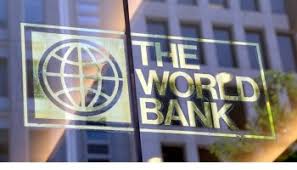The Federal Government has signed a massive $1.5 billion (R27 billion) loan agreement with the World Bank to help address serious infrastructure problems that have slowed down Nigeria’s economic growth for years.
The new deal is part of a development policy loan, which will focus mainly on removing long-standing bottlenecks in key infrastructure sectors—especially in power and freight transport. These two sectors have been identified as major obstacles to productivity, trade, and national competitiveness.
According to officials from both the government and the World Bank, the funds will be used to support infrastructure modernisation efforts across the country. This includes improving energy supply, upgrading freight rail systems, and ensuring that transport and logistics run more efficiently to meet growing demand.
Government representatives say the agreement shows the administration’s determination to tackle critical infrastructure issues that have affected everyday Nigerians and businesses.
“One of the biggest issues holding back growth and job creation is poor infrastructure—especially in the electricity sector and freight transportation,” said a senior official familiar with the negotiations. “This deal will help us open up the economy, reduce energy disruptions, and get goods moving faster and more reliably across the country.”
The World Bank, in its own statement, noted that Nigeria’s poor infrastructure has cost the country billions in lost economic output annually. By partnering with the government on these strategic reforms, the World Bank hopes to help Nigeria unlock its full economic potential.
“The goal is to address the root causes of inefficiency. This loan is not just about money—it’s about reform, policy change, and improved governance of the infrastructure space,” the bank noted.
This comes at a time when Nigeria is facing mounting pressure to boost productivity and attract more private investment in infrastructure, especially in the wake of slow growth, inflation, and limited fiscal space.
The loan will support the government in executing reforms in energy pricing, logistics management, and private sector participation in rail and port operations. The deal is also expected to help reduce the cost of doing business in Nigeria, making local industries more competitive on the global stage.
Analysts say the timing of the loan is strategic, as the government looks to stabilise the economy and generate new jobs. The investment in freight systems is particularly significant, considering how congested Nigerian ports and roads have become in recent years.
A transport sector analyst, Amaka Ogundele, said: “Freight efficiency is a big issue. Trucks are delayed for hours or even days, and that drives up the cost of goods. If the rail system is modernised and more reliable, it could change everything—prices, productivity, and even road safety.”
The power sector will also benefit from this new funding. The plan includes expansion of grid infrastructure, support for renewable energy options, and improved regulatory oversight to boost electricity generation and supply.
The government has promised transparency and accountability in managing the $1.5 billion loan, saying that reforms will be tracked with performance indicators and public reporting. Independent monitors will also be brought in to assess the impact and ensure proper use of funds.
Observers have welcomed the move, noting that for Nigeria to truly diversify its economy, solid and reliable infrastructure must be in place to support industrialisation and regional trade.
Meanwhile, the Ministry of Finance and relevant agencies are expected to begin rolling out action plans within the coming weeks, with timelines for key milestones tied to the release of funds.
